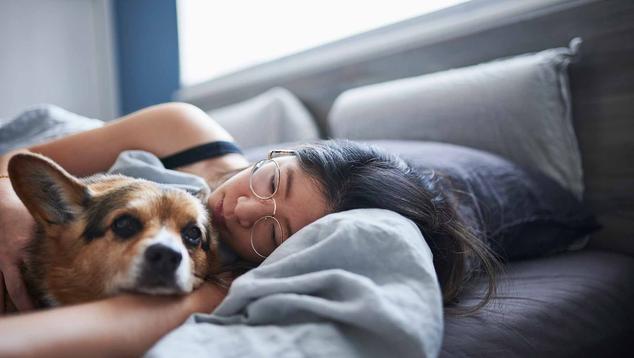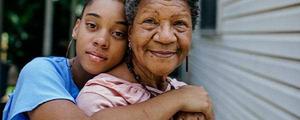Story Highlights
- 61% of adults under 30 report trouble sleeping prior night
- 68% of younger Americans report sleep has a major impact on their mood
- Women more likely to prioritize sleep but no difference in sleep quality
Editor's Note: The following research was conducted in a partnership between Casper and Gallup.
WASHINGTON, D.C. -- Younger adults and women in the U.S. are more likely than others to report trouble sleeping and are more affected by the quality of their sleep. These two groups are also most likely to report that sleep impacts other areas of their overall wellbeing and their social and professional lives, according to the State of Sleep in America 2022 Report, released by Gallup, in partnership with Casper.
The survey -- conducted by web from Jan. 11 - 17, 2022, using the probability-based Gallup Panel -- examines sleep quality, sleep-related behaviors and the importance of sleep among American adults.
Quality of Sleep Improves With Age
Younger adults in the U.S. are more likely to report having substandard ("fair" or "poor") sleep the night before compared with their older counterparts. Nearly four in 10 adults under the age of 50 (38%) said their sleep last night was fair or poor, compared with 30% of those aged 50 to 64 and 24% of those aged 65 and older.
| Excellent/Very good | Good | Fair/Poor | |
|---|---|---|---|
| % | % | % | |
| All adults | 32 | 35 | 33 |
| 18 to 29 years old | 27 | 34 | 38 |
| 30 to 39 years old | 28 | 33 | 38 |
| 40 to 49 years old | 32 | 29 | 38 |
| 50 to 64 years old | 31 | 38 | 30 |
| 65 and older | 38 | 36 | 24 |
| Summary group | |||
| Under 50 years old | 29 | 32 | 38 |
| Casper/Gallup, Jan 11-17, 2022 | |||
Younger Americans are also more likely than older Americans to report having some kind of trouble sleeping the night before. About six in 10 adults aged 18 to 29 said they had trouble falling asleep, staying asleep, or both the last time they slept, compared with half of those 50 and older reporting trouble with their sleep.
Stress and Worry Impact Young Adults' Sleep Quality, Influence Mood
Additional findings from the study suggest that sleep quality and age may be related to the negative impact that stress has on getting high-quality sleep. Younger Americans are more likely than older Americans to feel stressed: 64% of adults aged 18 to 29, 57% of adults aged 30 to 39, and 52% of adults aged 40 to 49 say they experienced stress "a lot" of the prior day, compared with 37% of adults aged 50 to 64 and 24% who are 65 and older.
The connection between stress and sleep quality is seen among all Americans, as those who reported feeling stress a lot of the day before were twice as likely to report not sleeping well that night compared with those who did not experience a lot of stress -- 45% vs. 23%.
The study identified a sleeper's mental and emotional state as the most important factor affecting sleep quality. Experiencing stress a lot of the day increases the chance of low-quality sleep that night by 96%, while significant daily worry increases the chances by 69%.
Sleep also seems to have a more potent effect on certain aspects of younger adults' overall quality of life. Americans under the age of 50 are much more likely than Americans over 50 to report that sleep has a major impact on their mood, ability to have fun, health in general and day at work.
| Your mood | Your health in general | Your day at work* | Your ability to have fun | |
|---|---|---|---|---|
| % | % | % | % | |
| All U.S. adults | 49 | 45 | 49 | 30 |
| 18 to 29 years old | 68 | 59 | 66 | 46 |
| 30 to 39 years old | 59 | 51 | 56 | 37 |
| 40 to 49 years old | 60 | 51 | 51 | 33 |
| 50 to 64 years old | 40 | 38 | 35 | 24 |
| 65 and older | 31 | 31 | 28 | 19 |
| Summary Group | ||||
| Under 50 | 61 | 53 | 57 | 38 |
| *Results for respondents who are currently employed. | ||||
| Casper/Gallup, Jan. 11-17, 2022 | ||||
Women Prioritize Sleep More Than Men but Sleep Worse
Sixty-one percent of women versus 48% of men say sleep is a major priority, and a slightly higher percentage of women (36% "a lot" or "some") than men (30% "a lot" or "some") report being worried about falling asleep. However, women's worry doesn't necessarily lead to better sleep quality, as 26% of women report "excellent" or "very good" sleep in the past 30 days while 29% of men do the same.
Although women in the U.S. are more likely than men to prioritize sleep, their sleep outcomes are no better -- in some cases, they are worse. Women are more likely than men to report some trouble sleeping the prior night (59% vs. 49%, respectively), with women slightly more likely than men to report trouble falling asleep (17% to 12%).
| All U.S. adults | Men | Women | |
|---|---|---|---|
| % | % | % | |
| Had trouble falling asleep | 15 | 12 | 17 |
| Had trouble staying asleep | 28 | 28 | 29 |
| Had trouble falling and staying asleep | 11 | 9 | 13 |
| Total: Some trouble sleeping overall | 54 | 49 | 59 |
| Casper/Gallup, Jan 11-17. 2022 | |||
As with younger Americans, women are somewhat more likely to report experiencing general stress and worry a lot of the day before compared with men. Forty-three percent of women reported feeling worry compared with 37% of men, and 48% of women reported feeling stress compared with 42% of men.
Finally, women are also more likely to report that sleep has a major impact on various other aspects of their life and wellbeing. Across all areas, women are between nine and 14 percentage points more likely than men to say sleep has a major impact.
| U.S. Adults | Men | Women | |
|---|---|---|---|
| % | % | % | |
| Your mood | 49 | 42 | 56 |
| Your health in general | 45 | 40 | 49 |
| Your day at work* | 49 | 43 | 55 |
| Your exercise | 31 | 26 | 36 |
| Your ability to have fun | 30 | 26 | 35 |
| Relationship with family members | 26 | 21 | 31 |
| How healthy you eat | 23 | 17 | 28 |
| *Results for respondents who are currently employed. | |||
| Casper/Gallup, Jan 11-17, 2022 | |||
Bottom Line
Research conducted for the State of Sleep in America 2022 Report by Casper/Gallup found that younger Americans and women have more trouble with sleep than older adults and men. They are much more likely to report that sleep impacts other areas of their social and professional lives and overall wellbeing. Furthermore, the evidence indicates that simply "prioritizing" sleep more doesn't necessarily translate to better sleep outcomes for certain segments of the public.
Trouble sleeping is highest among young adults and women. The data suggest a connection between their sleep quality and their elevated levels of worry and stress the day before (compared with older Americans and men). This fits well with the central finding from the data presented in the full report -- that mental health and sleep quality are strongly related.
Casper is a sleep product company.
Read the full the State of Sleep in America 2022 Report.
To stay up to date with the latest Gallup News insights and updates, follow us on Twitter.
Learn more about how the Gallup Panel works.



